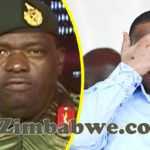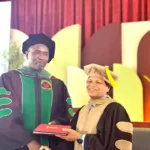Harare – The political landscape in Zimbabwe is once again simmering with tension as whispers of a potential third term for President Emmerson Mnangagwa reverberate through the corridors of power. While the President has publicly stated his intention to step down in 2028, calls for an extension of his mandate from within ZANU PF have ignited a firestorm of controversy and raised serious concerns about the future of Zimbabwe’s democracy.
The clamour for Mnangagwa to remain in power beyond the constitutionally mandated two terms has emanated from ZANU PF’s provincial structures, a clear indication that the party’s internal dynamics are far from settled. This push for a third term, despite Mnangagwa’s pronouncements, has sent a chill through the political establishment and sparked widespread anxieties about the potential for instability, New Zimbabwe has reported.
Political analysts have told President Mnangagwa that such a move would be a blatant disregard for the Constitution and could trigger a cascade of unforeseen consequences, potentially leading to internal rebellion, a possible coup, and widespread unrest.
“Zanu PF has never respected the Constitution,” declared political analyst Rejoice Ngwenya, his voice laced with a mixture of cynicism and concern. “So because Tshabangu gave them two-thirds in Parliament, they will tinker around with the two-term clause. If that happens, the consequences will be tectonic.”
Ngwenya painted a picture of the potential fallout, outlining a scenario that could plunge Zimbabwe into a vortex of political chaos:
“First, there will be a bloody internal rebellion in Zanu PF and we may end up with the November 2017 ‘military intervention’. Secondly, opposition supporters and CSOs will riot. Third, the international business community will shun Zimbabwe, the dollar collapses against the ZiG and mass emigration of young people,” he warned.
The echoes of November 2017, when the military intervened to remove Robert Mugabe from power, still resonate in the minds of many Zimbabweans. The specter of a repeat of that tumultuous period hangs heavy in the air, casting a dark shadow over the country’s future.
The potential for internal rebellion within ZANU PF itself is a significant concern. The party has long been plagued by factionalism, and a move to extend Mnangagwa’s term could exacerbate these divisions, potentially leading to a power struggle that could destabilise the entire political system.
The calls for a third term through a clandestine campaign popularly known as ‘ED2030’ that is being pushed by a faction that reportedly opposes Vice President Constantino Chiwenga’s ascendancy to power at the end of Mnangagwa’s term, have also sparked anxieties among potential successors to Mnangagwa, particularly his deputy, Constantino Chiwenga.
Chiwenga, who played a pivotal role in the 2017 coup, is widely seen as a contender for the presidency. However, a third term for Mnangagwa would effectively derail his ambitions, potentially leading to further tensions within ZANU PF.
“The virus of third-termism is creeping into Zimbabwe,” warned political analyst Lazarus Sauti, highlighting the dangers of such a move. “Without a doubt, the term limit evasion virus, which is linked to increased levels of autocracy, political corruption, and political violence, is the primary cause of all governance problems in Zimbabwe and other African states.”
“These calls from the Zanu PF structure highlight the issue of factionalism inside Zanu PF and shatter the dreams of Chiwenga and other potential leaders of this country. Further, the calls go against democratic principles as they discourage people from openly challenging the current leader,” he added.
The potential for a third term for Mnangagwa has brought a wave of concern through the opposition and civil society, who fear that it could further erode democratic principles and entrench the ruling party’s grip on power. The prospect of a prolonged period of authoritarian rule has sparked fears of a further decline in human rights, a worsening economic crisis, and a deepening sense of disillusionment among the population. However, should President Mnangagwa stick to his promise that at the end of his second term, he is stepping down, one of these seven people will be Zimbabwe’s next president.

Follow @MyZimbabweNews












